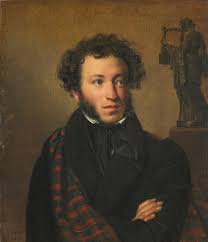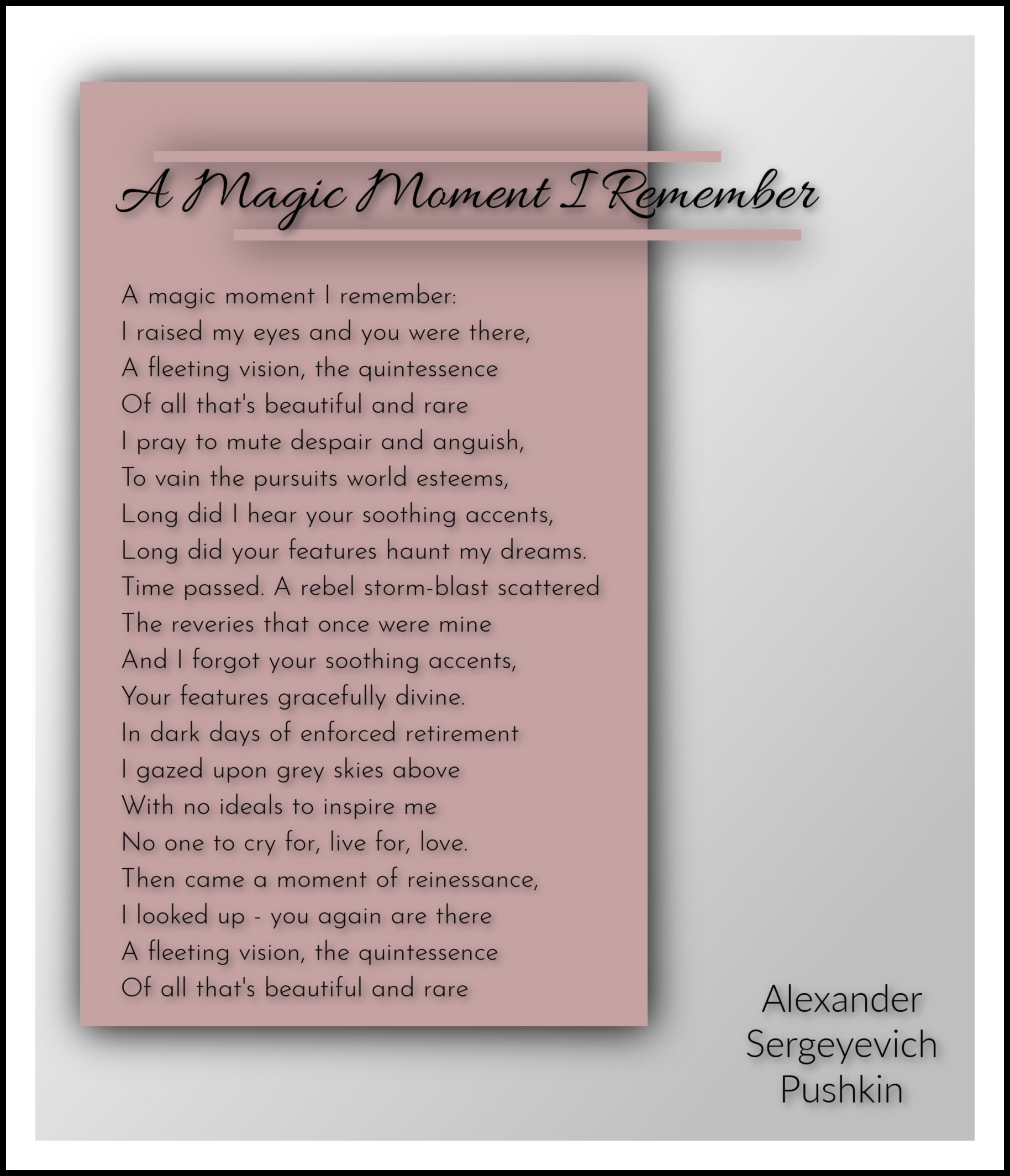
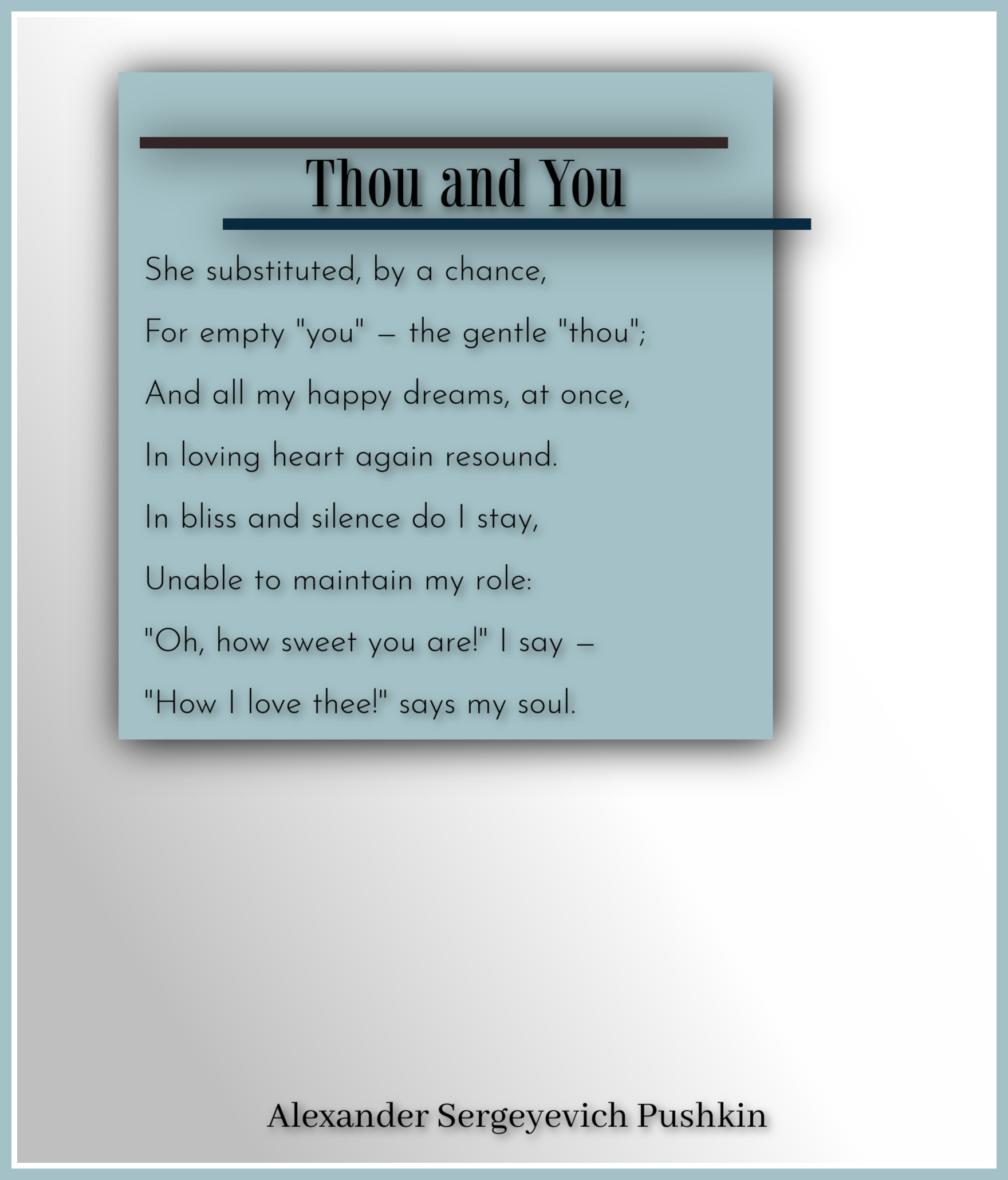
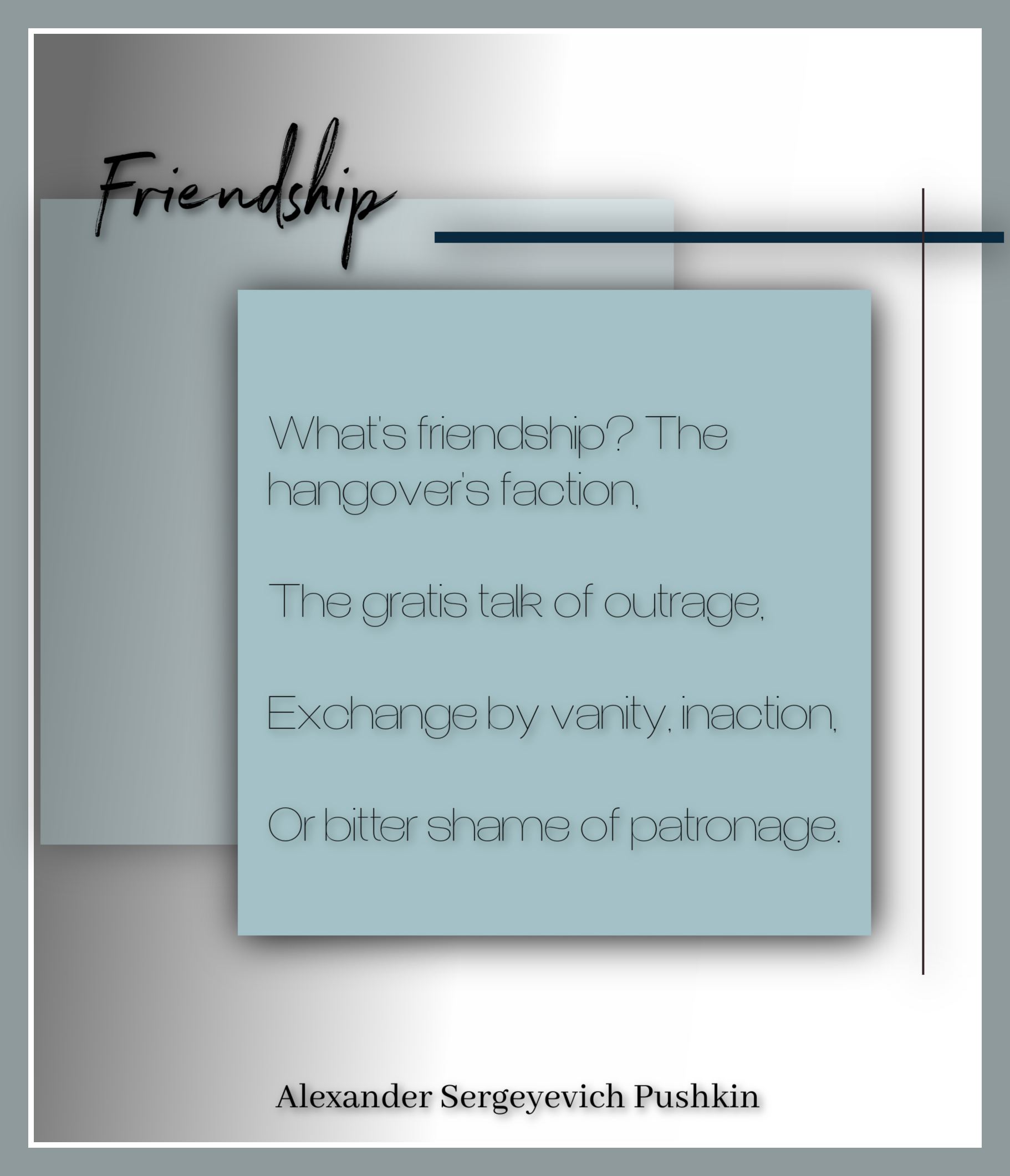
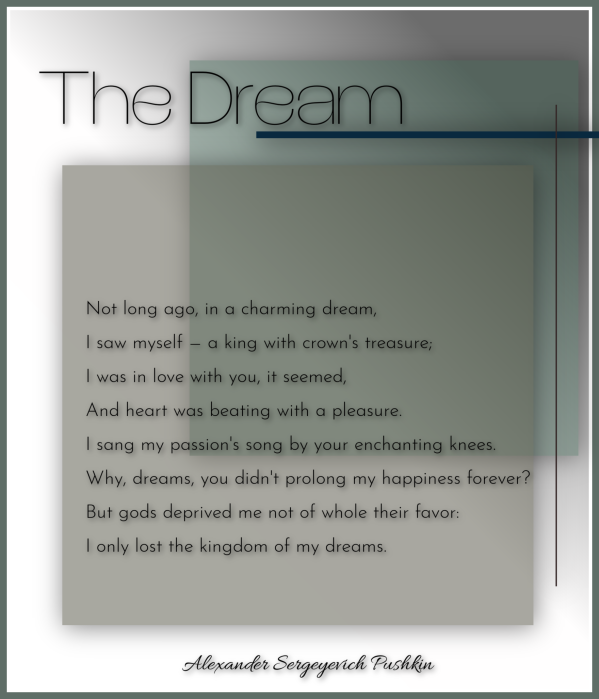
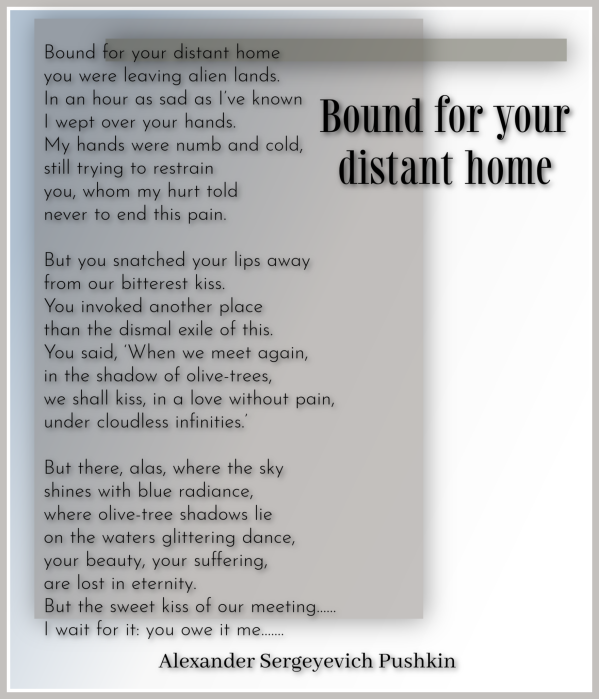
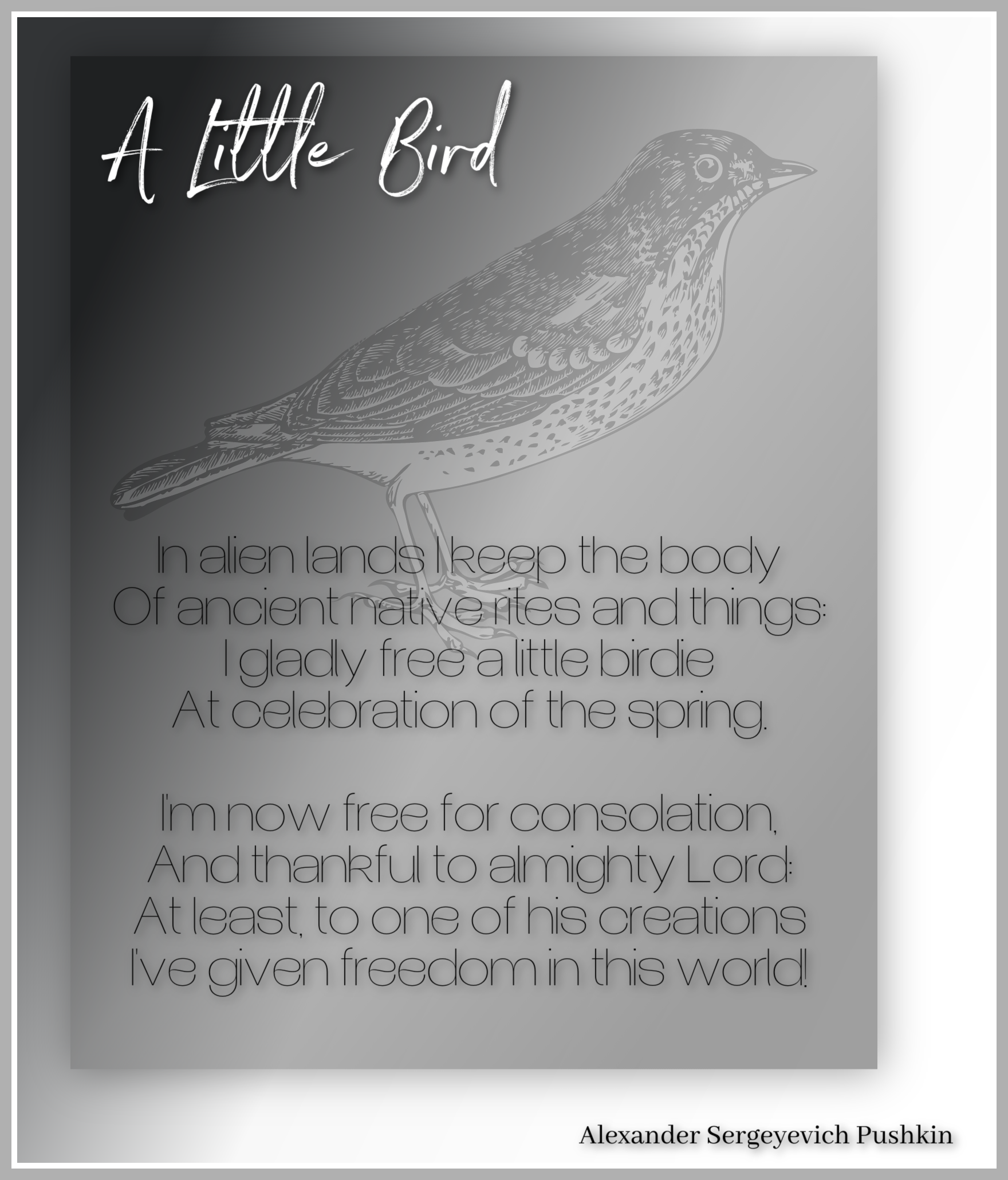
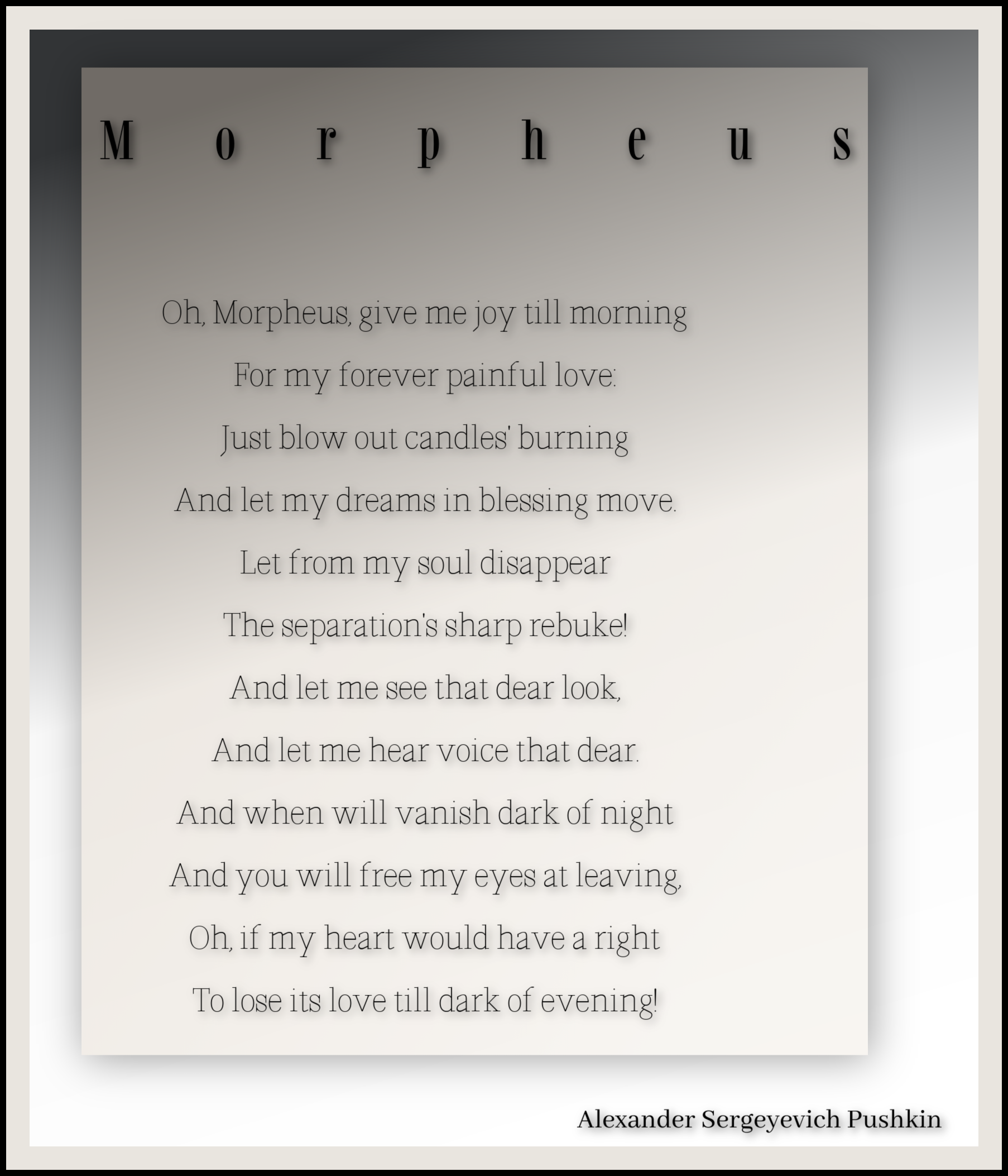
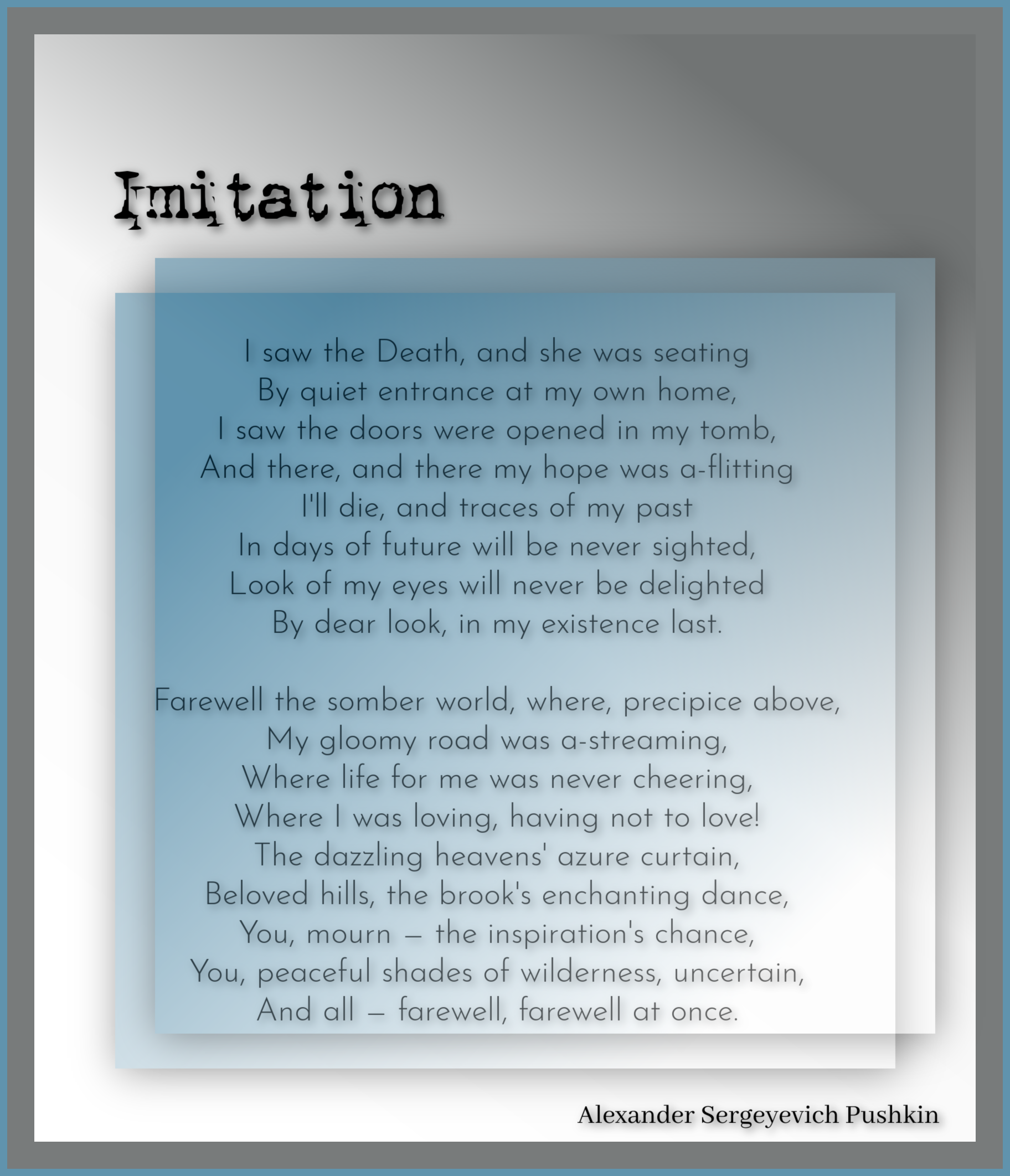
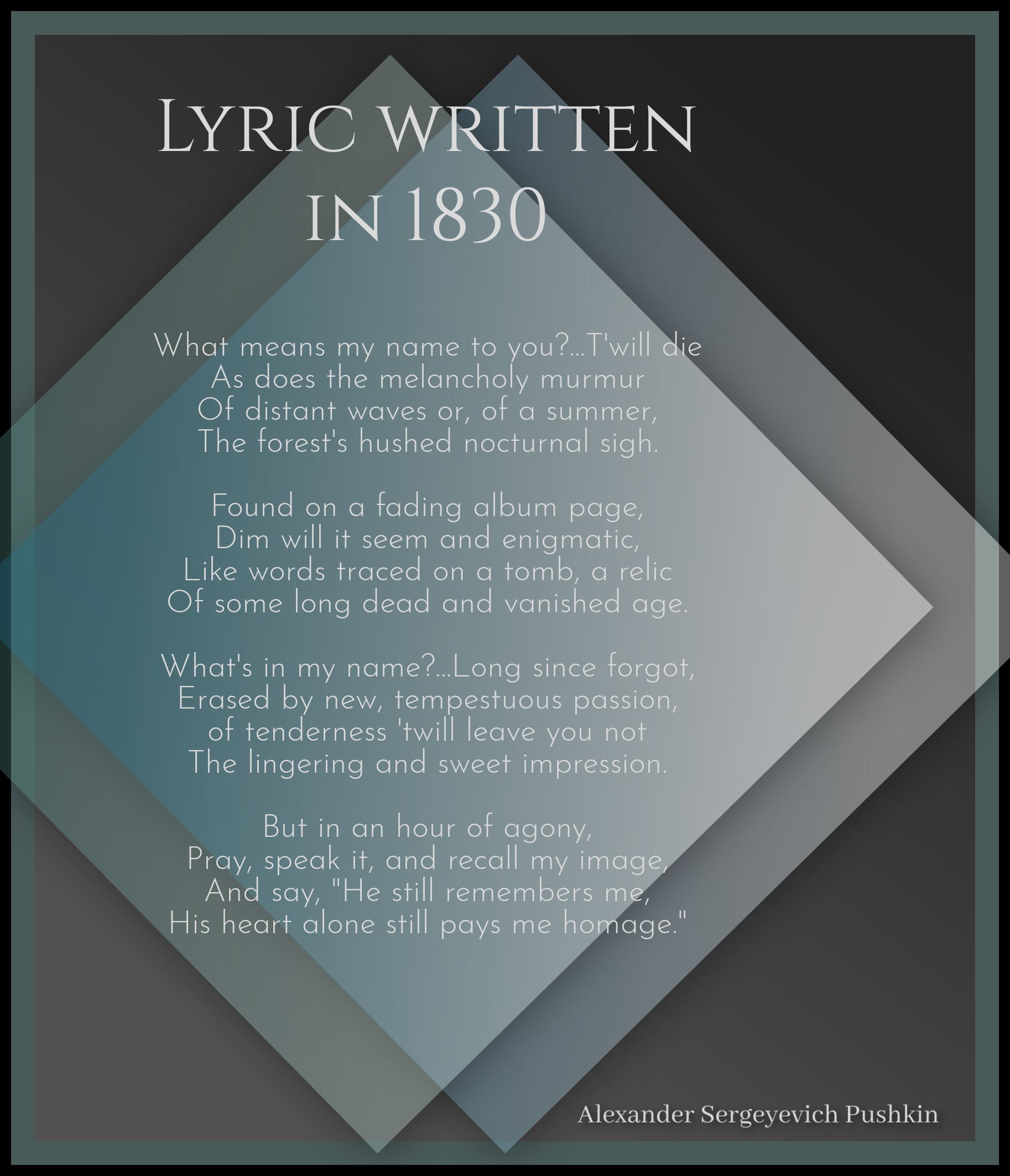
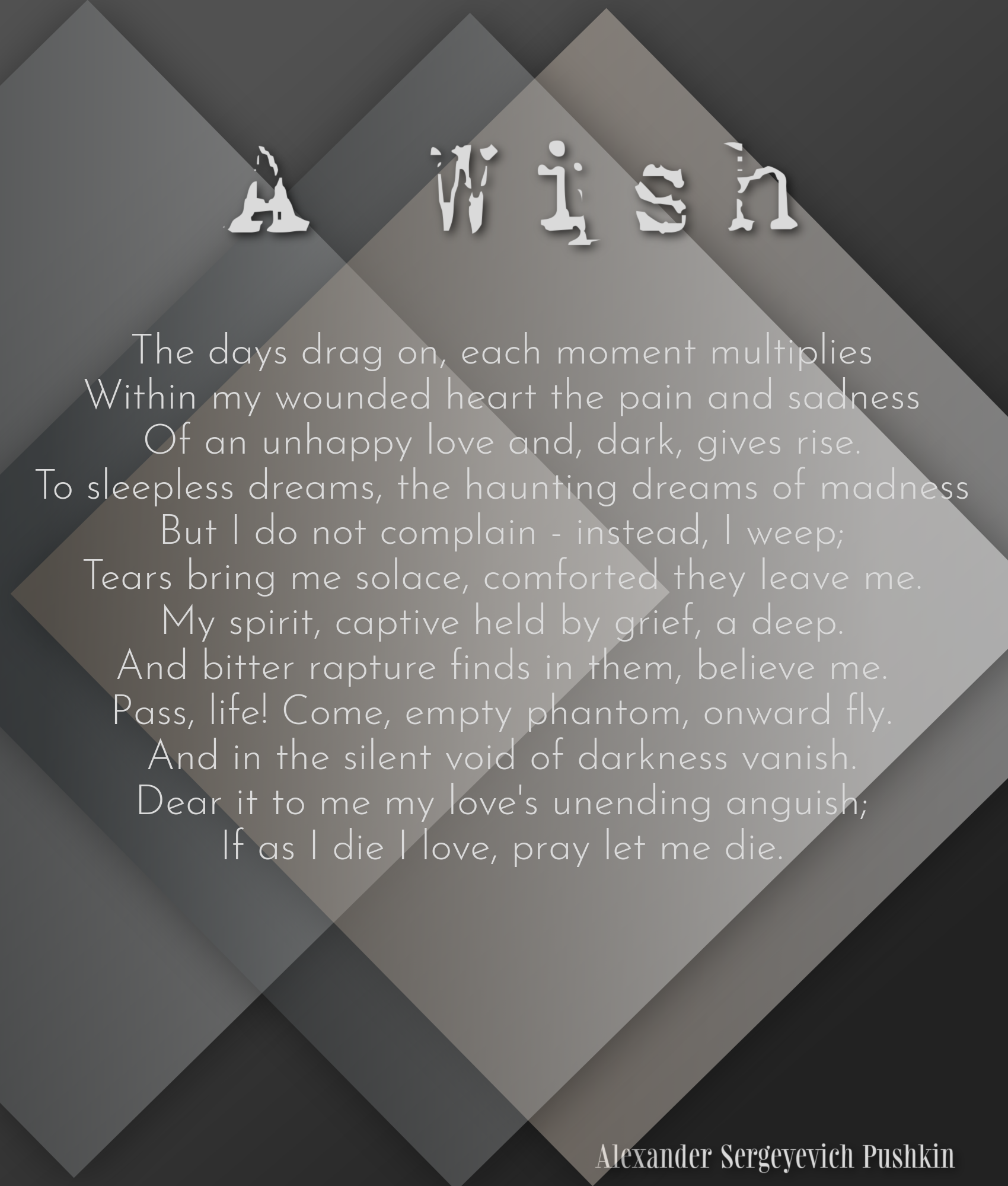
Confession
I LOVE YOU - I love you, e'en as I
Rage at myself for this obsession,
And as I make my shamed confession,
Despairing at your feet I lie.
I know, I know - It ill becomes me,
I am too old, time to be wise ...
But how? ... This love - it overcomes me,
A sickness this in passion's guise.
When you are near I'm filled with sadness,
When far, I yawn, for life's a bore.
I must pour out this love, this madness,
There's nothing that I long for more!
When your shirts rustle, when, my angel,
Your girlish voice I hear, when your
Light step sounds in the parlour - strangely,
I turn confused, perturbed, unsure.
Your frown - and I'm in pain, I languish;
You smile - and joy defeats distress;
My one reward for a day's anguish
Comes when your, pale hand, love, I kiss.
When you sit, bent over your sewing,
Your eyes cast down and fine curls blowing.
About your face, with tenderness
I like childlike watch, my heart o'erflowing
With love, in my gaze a caress.
Shall I my jealousy and yearning
Describe, my bitterness and woe
When by yourself on some bleak morning
Off on a distant walk you go,
Or with another spend the evening
And, with him near, the piano play,
Or for Opochka leave, or, grieving
Weep and in silence, pass the day?
Alina! Pray relent have mercy!
I dare not ask for love - with all
My many sins, both great and small,
I am perhaps of love unworthy!
But if feigned love, if you would
Pretend, you'd easily deceive me,
For happily would I, believe me,
Deceive myself if but I could!
The Prophet
Longing for spiritual springs,
I dragged myself through desert sands…
An angel with three pairs of wings
Arrived to me at cross of lands;
With fingers so light and slim
He touched my eyes as in a dream:
And opened my prophetic eyes
Like eyes of eagle in surprise.
He touched my ears in movement, single,
And they were filled with noise and jingle:
I heard a shuddering of heavens,
And angels' flight on azure heights
And creatures' crawl in long sea nights,
And rustle of vines in distant valleys.
And he bent down to my chin,
And he tore off my tongue of sin,
In cheat and idle talks aroused,
And with his hand in bloody specks
He put the sting of wizard snakes
Into my deadly stoned mouth.
With his sharp sword he cleaved my breast,
And plucked my quivering heart out,
And coals flamed with God's behest,
Into my gaping breast were ground.
Like dead I lay on desert sands,
And listened to the God's commands:
'Arise, O prophet, hark and see,
Be filled with utter My demands,
And, going over Land and Sea,
Burn with your Word the humane hearts.
Muse
In my youth's years, she loved me, I am sure.
The flute of seven pipes she gave in my tenure
And harked to me with smile — without speed,
Along the ringing holes of the reed,
I got to play with my non-artful fingers
The peaceful songs of Phrygian village singers,
And the important hymns, that gods to mortals bade.
>From morn till night in oaks' silent shade
I diligently harked to the mysterious virgin;
Rewarding me, by chance, for any good decision,
And taking locks aside of the enchanting face,
She sometimes took from me the flute, such commonplace.
The reed became alive in consecrated breathing
And filled the heart with holiness unceasing.
The Song Of The Kasak
Kazak speeds ever toward the North,
Kazak has never heart for rest,
Not on the field, nor in the wood,
Nor when in face of danger pressed
His steed the raging stream must breast!
Kazak speeds ever toward the North,
With him a mighty power brings,
To win the honour of his land
Kazak his life unheeding flings—
Till fame of him eternal sings!
Kazak brought all Siberia
At foot of Russia's throne to lie,
Kazak left glory in the Alps,
His name the Turk can terrify,
His flag he ever carries high!
Kazak speeds ever toward the North,
Kazak has never heart for rest,
Not on the field, nor in the wood,
Nor when in face of danger pressed
His steed the raging stream must breast!
Tempest
You saw perched on a cliff a maid,
Her raiment white above the breakers,
When the mad sea reared up and played
Its whips of spray on coastal acres
And now and then the lightnings flush,
And purple gleams upon her hover,
And fluttering up in swirling rush,
The wind rides in her airy cover?
Fair is the sea in gales arrayed,
The heavens drained of blue and flashing,
But fairer on her cliff the maid
Than storms and skies and breakers crashing.
The Name
What is my name to you? 'T will die:
a wave that has but rolled to reach
with a lone splash a distant beach;
or in the timbered night a cry…
'T will leave a lifeless trace among
names on your tablets: the design
of an entangled gravestone line
in an unfathomable tongue.
What is it then? A long-dead past,
lost in the rush of madder dreams,
upon your soul it will not cast
Mnemosyne's pure tender beams.
But if some sorrow comes to you,
utter my name with sighs, and tell
the silence: "Memory is true -
there beats a heart wherein I dwell."
The Upas Tree
Deep in the desert's misery,
far in the fury of the sand,
there stands the awesome Upas Tree
lone watchman of a lifeless land.
The wilderness, a world of thirst,
in wrath engendered it and filled
its every root, every accursed
grey leafstalk with a sap that killed.
Dissolving in the midday sun
the poison oozes through its bark,
and freezing when the day is done
gleams thick and gem-like in the dark.
No bird flies near, no tiger creeps;
alone the whirlwind, wild and black,
assails the tree of death and sweeps
away with death upon its back.
And though some roving cloud may stain
with glancing drops those leaden leaves,
the dripping of a poisoned rain
is all the burning sand receives.
But man sent man with one proud look
towards the tree, and he was gone,
the humble one, and there he took
the poison and returned at dawn.
He brought the deadly gum; with it
he brought some leaves, a withered bough,
while rivulets of icy sweat
ran slowly down his livid brow.
He came, he fell upon a mat,
and reaping a poor slave's reward,
died near the painted hut where sat
his now unconquerable lord.
The king, he soaked his arrows true
in poison, and beyond the plains
dispatched those messengers and slew
his neighbors in their own domains.
On Count Voronstov
One half Milord, one half in trade,
One half a sage, one half a dunce,
One half a crook, but here for once
There's every hope he'll make the grade.
Thoughts
If I walk the noisy streets,
Or enter a many thronged church,
Or sit among the wild young generation,
I give way to my thoughts.
I say to myself: the years are fleeting,
And however many there seem to be,
We must all go under the eternal vault,
And someone?s hour is already at hand.
When I look at a solitary oak
I think: the patriarch of the woods.
It will outlive my forgotten age
As it outlived that of my grandfathers?.
If I dandle a young infant,
Immediately I think: farewell!
I will yield my place to you,
For I must fade while your flower blooms.
Each day, and every hour
I habitually follow in my thoughts,
Trying to guess from their number
The year which brings my death.
And where will fate send death to me?
In battle, in my travels, or on the seas?
Or will the neighbouring valley
Receive my chilled ashes?
And although to the senseless body
It is indifferent wherever it rots,
Yet close to my beloved countryside
I still would prefer to rest.
And let it be, beside the grave?s vault
That young life forever will be playing,
And impartial, indifferent nature
Eternally be shining in beauty.
|
|
